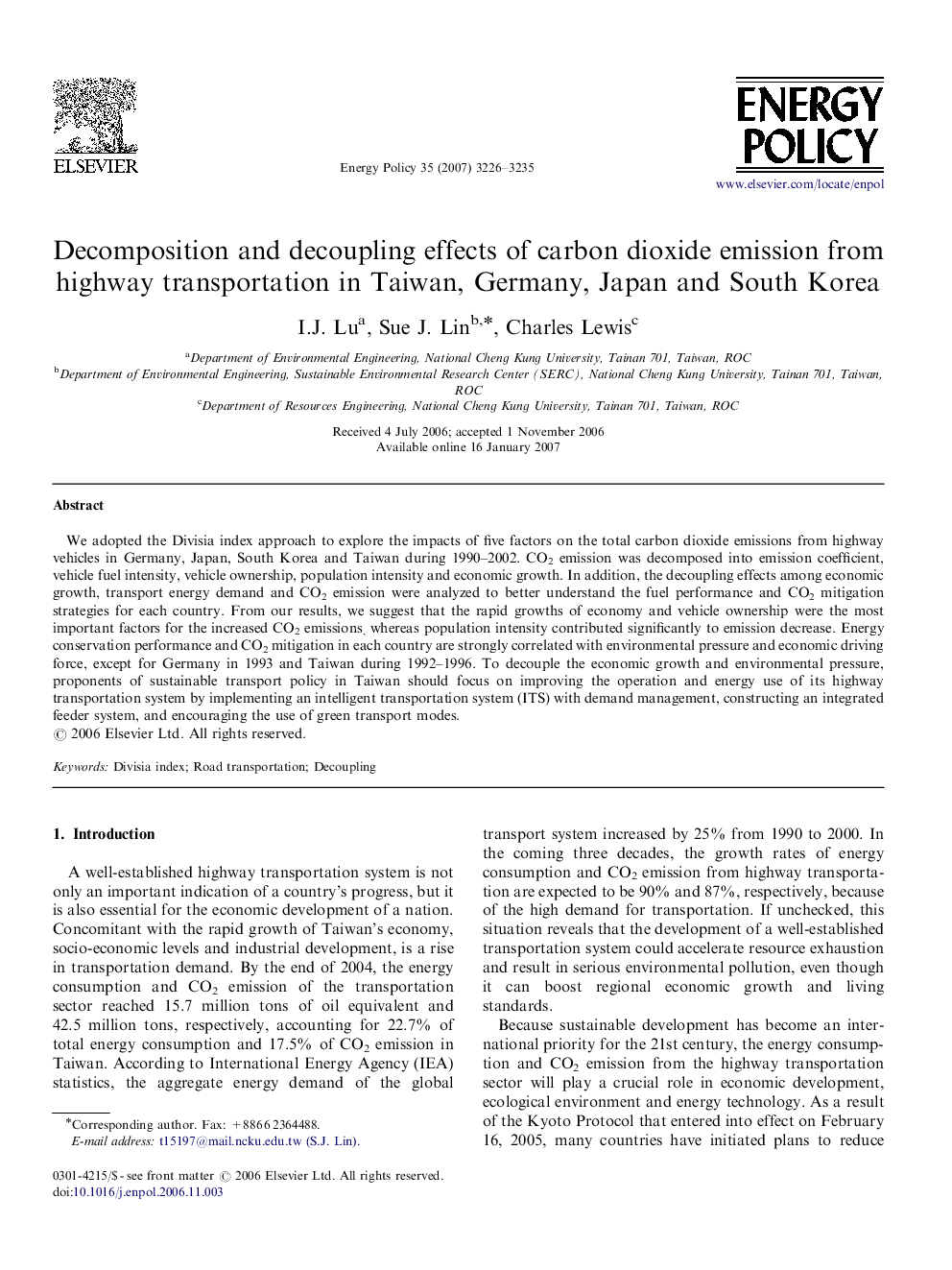| کد مقاله | کد نشریه | سال انتشار | مقاله انگلیسی | نسخه تمام متن |
|---|---|---|---|---|
| 994432 | 936088 | 2007 | 10 صفحه PDF | دانلود رایگان |

We adopted the Divisia index approach to explore the impacts of five factors on the total carbon dioxide emissions from highway vehicles in Germany, Japan, South Korea and Taiwan during 1990–2002. CO2 emission was decomposed into emission coefficient, vehicle fuel intensity, vehicle ownership, population intensity and economic growth. In addition, the decoupling effects among economic growth, transport energy demand and CO2 emission were analyzed to better understand the fuel performance and CO2 mitigation strategies for each country. From our results, we suggest that the rapid growths of economy and vehicle ownership were the most important factors for the increased CO2 emissions, whereas population intensity contributed significantly to emission decrease. Energy conservation performance and CO2 mitigation in each country are strongly correlated with environmental pressure and economic driving force, except for Germany in 1993 and Taiwan during 1992–1996. To decouple the economic growth and environmental pressure, proponents of sustainable transport policy in Taiwan should focus on improving the operation and energy use of its highway transportation system by implementing an intelligent transportation system (ITS) with demand management, constructing an integrated feeder system, and encouraging the use of green transport modes.
Journal: Energy Policy - Volume 35, Issue 6, June 2007, Pages 3226–3235